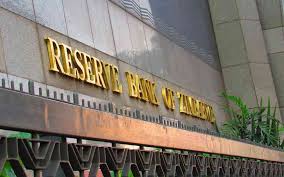ZIMBABWE businesses, grappling with the realities of hyperinflation and exchange rate induced losses, have pressed the panic button over worsening macro-economic conditions in the country, with several companies embarking on massive retrenchments as they respond to the economic difficulties.
So dire is the situation that the Employers' Confederation of Zimbabwe (EMCOZ) this week warned that more companies could shut down and those still operating would throw many more workers onto the
streets in the remaining few months of the year.
Most companies in Zimbabwe are operating well below 40% of capacity utilisation and are hard hit by economic difficulties. EMCOZ said the volatility was ravaging companies – characterised by disappointing sales numbers, spiralling costs, the two per cent tax on electronic transactions which came into effect in October last year, and high annual inflation which is rated among the highest in Africa.
The demise has been accelerated by policy inconsistences , foreign currency shortages which have scared away foreign capital. Power outages have also rocked the country in the last six months, pushing the already ailing economy into paralysis.
A reliable and affordable electricity supply is a key enabler in the productive sector. According to a recent report by the Confederation of Zimbabwe Industry (CZI), local industries have been losing significant
amounts of dollars due to power cuts alone.
EMCOZ president Israel Murefu told Business Times this week that most business risked falling off the wagon. He said further potential job cuts were inevitable, as companies step up restructuring efforts because they have run out of steam. The outlook, he added, remained challenging given the economic collapse.
Fuel prices have gone up from ZWL$1.32 per litre of petrol in January this
year to ZWL$14.97 per litre, while diesel that sold at ZWL$1.24 per litre in January is selling this week at ZWL$15.64 per litre. Fuel prices have been going up every week.
The relentless fuel price increases is one of the biggest cost drivers that trigger even higher production costs for companies, that eventually is passed on to consumers. This results in low demand of products, meaning
it makes it harder than ever for companies to make meaningful profits.
Further workforce layoffs are inevitable as several companies grapple with the punitive realities of high inflation, exchange rate-induced losses, a debilitating liquidity crunch, and low productivity."It's clearly a critical juncture for companies at the moment," Murefu told Business Times this week.
"We are battling a serious crisis of power calamity where we have more hours without electricity on a daily basis, a situation which seriously affects production." Murefu continued. "Fuel is also scarce, which is a big problem that we are battling with. To worsen the situation, the fuel price changes
almost weekly or even shorter."Murefu said some businesses had started laying off workers, a route EMCOZ discourages. "But businesses are sinking and have no option than to lay off some workers," he argued.
The erosion of consumer disposable income caused by a spike in prices in recent months has resulted in a significant slide in demand for goods and services, something which has a bearing in growth projections. This means, margins are under pressure. Several analysts this week insinuated that
Zimbabwe's jaw-dropping economic data points to a decaying economy.
They said most companies have suffered significant value destruction due to a sustained period of capital drought. As a result, apart from high costs, inflation, and low demand, they are also grappling with antiquated machinery and are hugely undercapitalised. They are now forced to lay off workers.
Sekai Kuvarika, the CZI chief executive officer, told Business Times that the economic crisis gripping the country would result in a sharp dip in industrial productivity. Her sentiments come at a time the government is struggling to steady the ship amid a galloping inflation which jumped
300% in August.
The volatile exchange rate, analysts told Business Times was a double-edged sword, which cut either way. While the depreciation of the Zim dollar may push up exports depending on the price elasticity of demand, it may also ratchet up domestic prices by restricting imports and raising the costs of raw materials.
The weakening of the Zim dollar against the US dollar increases costs for importers, thus reducing profitability. Several analysts said the economy and the interbank market had failed to perform to expectation.
"Our key call to government at the moment is for it to provide a stable macroeconomic environment, a stable exchange rate, and business regulation which remain uncompetitive," Kuvarika said.
"We are still out at the moment doing our CZI survey," he continued. "Unfortunately we do not have the actual figures on company closures and layoffs of workforce until the survey is complete. But we have observed some company closures and workers being thrown into the streets in the manufacturing industry. Also, in the banking sector, we have seen branches being closed and workers sent home."
Finance Minister, Mthuli Ncube, who has been the "poster boy" of the austerity measures adopted by the government, has responded to the economic crisis by banning the publication of annual inflation statistics until early next year.
The last official inflation figure was 176% in June this year. Ncube also introduced the two per cent tax on intermediated financial transaction in a bid to boost government revenues. But while the tax has indeed grown the government purse, it has caused much pain to already struggling local companies. So, in effect, it is akin to cutting your nose to smite your face.
The tax has also resulted in spike in prices of goods and services. Businesses and the general populace, analysts said, were going through the pain of severe inflation as prices are going up almost on a daily basis. This has pushed businesses to demand payment in US dollars or peg their prices against the black market rate. But many cannot afford these.
Despite that, Ncube is saying Zimbabwean companies and individuals should continue to tighten their belts as the measures will be successful. But, businesses are not convinced.
Industries are slowly losing hope in the government's ability to turn around the economy. Several captains of industry told Business Times that the government seemed to be running out of ideas.
Recently, Old Mutual Zimbabwe, the country's largest integrated financial corporation by assets, hinted it was going to lay off more than 10% of its workforce.
Economist Gift Mugano said the economic situation was likely to remain gloomy, meaning there will be more carnage on the industrial front.
"Inflation will continue to spiral until the currency collapses, and unless if the government secures a substantial supply of forex as well as radically substitutes unnecessary imports. The two are unlikely," Mugano said. "The outlook is dampened by political uncertainty emanating from social unrest and policy uncertainty."
- businesstime
 Zimbabwe's crocodile product exports surge
Zimbabwe's crocodile product exports surge  Starlink plans to go big in South Africa
Starlink plans to go big in South Africa  'Some very strange things are happening in China!'
'Some very strange things are happening in China!'  Zimbabwe's dollar stock exchange surges 45%
Zimbabwe's dollar stock exchange surges 45%  Gold edges up as traders await guidance
Gold edges up as traders await guidance  Gold shatters $4,000 milestone
Gold shatters $4,000 milestone  Young Investment Professional (YIP) Graduate Programme 2019
Young Investment Professional (YIP) Graduate Programme 2019 










 Young Investment Professional (YIP) Graduate Programme 2019
Young Investment Professional (YIP) Graduate Programme 2019
Editor's Pick